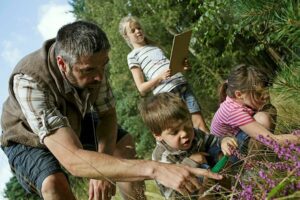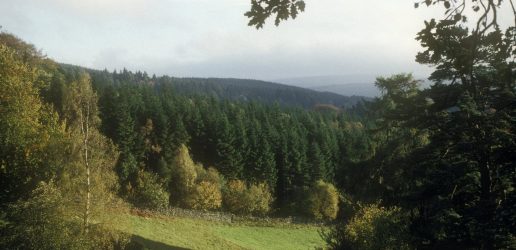
Research shows us that connecting with the natural environment has many benefits for our physical health and mental wellbeing.
Now a newly published report from a collaboration between the Environment Agency, Natural Resources Wales, NatureScot, Natural England and Forest Research collates the findings of their research investigating how people visited nature and their experiences of it during the Covid-19 restrictions of 2020.
The research shows a polarised picture of experience, with some people’s interaction with nature increasing during the pandemic, while for others, Covid-19 meant they enjoyed less time in nature than expected for the time of year.

Outdoor visits
Between April and June 2020, 40% of adults in England reported that they had spent more time outside since the coronavirus restrictions began, whilst over a third (35%) reported that they had not visited at all in the last 14 days.
There was a similar picture in Scotland during the initial lockdown period and while the proportion of people taking regular outdoor visits was higher than expected for the time of year, almost a fifth of adults took no visits at all.
In Wales, most forest sites and national nature reserves managed by Natural Resources Wales saw a 90% reduction in visits during the first lockdown in March to June 2020, but a substantial rebound during the more open summer season from July to September, with visitor numbers at some sites almost doubling compared to previous years.
The report notes that six in ten children reported spending less time outdoors since the start of coronavirus, more than double those who spent more time outside.
Urban green spaces were the most frequently visited of all natural spaces, and walking was the most popular activity enjoyed by the majority of adults.
Benefits of being in nature
74% of adults in England took more time to notice and engage with everyday nature (listening to birdsong, noticing butterflies). In Scotland, there were also increased levels of participation in watching wildlife and other nature engagement activities. Equally, qualitative research found that one of the main reasons for people visiting Natural Resources Wales’ sites was to ‘be in nature’
Reasons for not visiting and barriers
The findings suggest the Covid-19 pandemic may have exacerbated existing inequalities in access to nature, with socio-economic status, age, and health status having an influence on people’s ability to access nature.
A summary of the key findings and the full details of the work can be found in:
Armstrong, A., Brockett, B., Eustice, T., Lorentzon, A., O’Brien, L., Williams, S. (2021) Why Society Needs Nature: Lessons from Research during Covid-19.
New research has been published which explores how to enable and encourage access to woodlands for diverse members of the public.
Forest Research has been involved in a project focusing on efforts to improve inclusivity in biosecurity practices by exploring how to integrate different knowledge systems into mainstream decision-making.

Forest Research has released the latest Accredited Official Statistics on woodland and forestry in the UK.
New research has been published which explores how to enable and encourage access to woodlands for diverse members of the public.
Forest Research has been involved in a project focusing on efforts to improve inclusivity in biosecurity practices by exploring how to integrate different knowledge systems into mainstream decision-making.

Forest Research has released the latest Accredited Official Statistics on woodland and forestry in the UK.